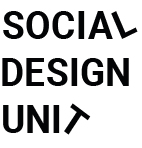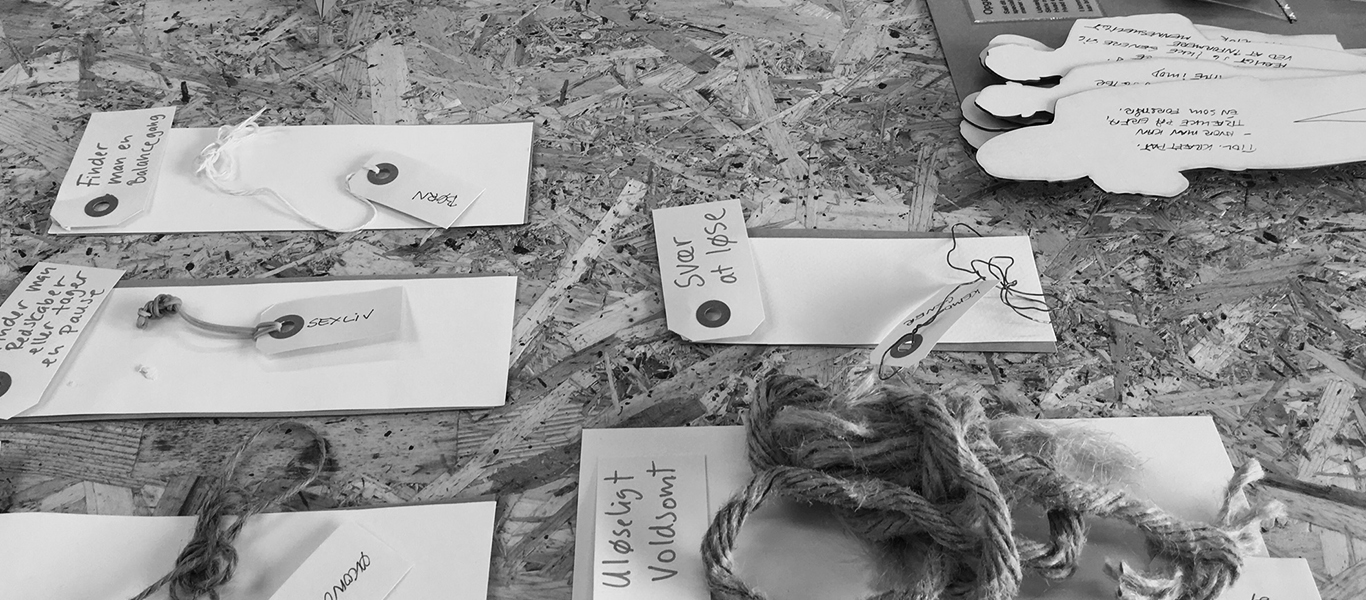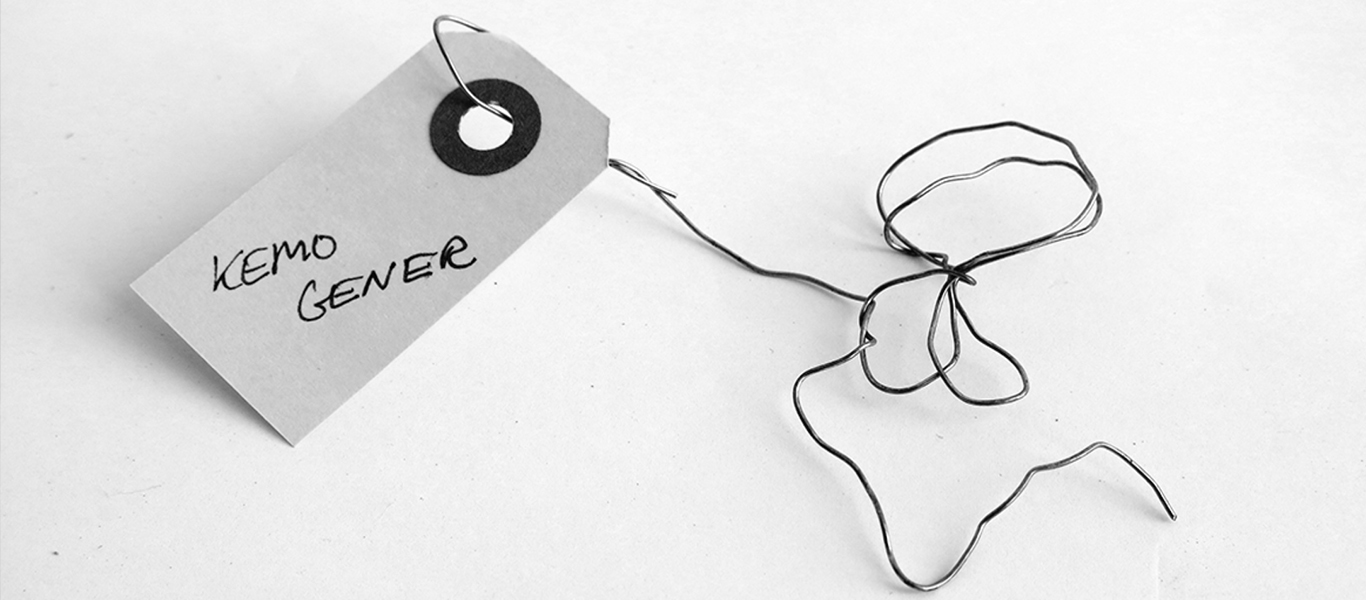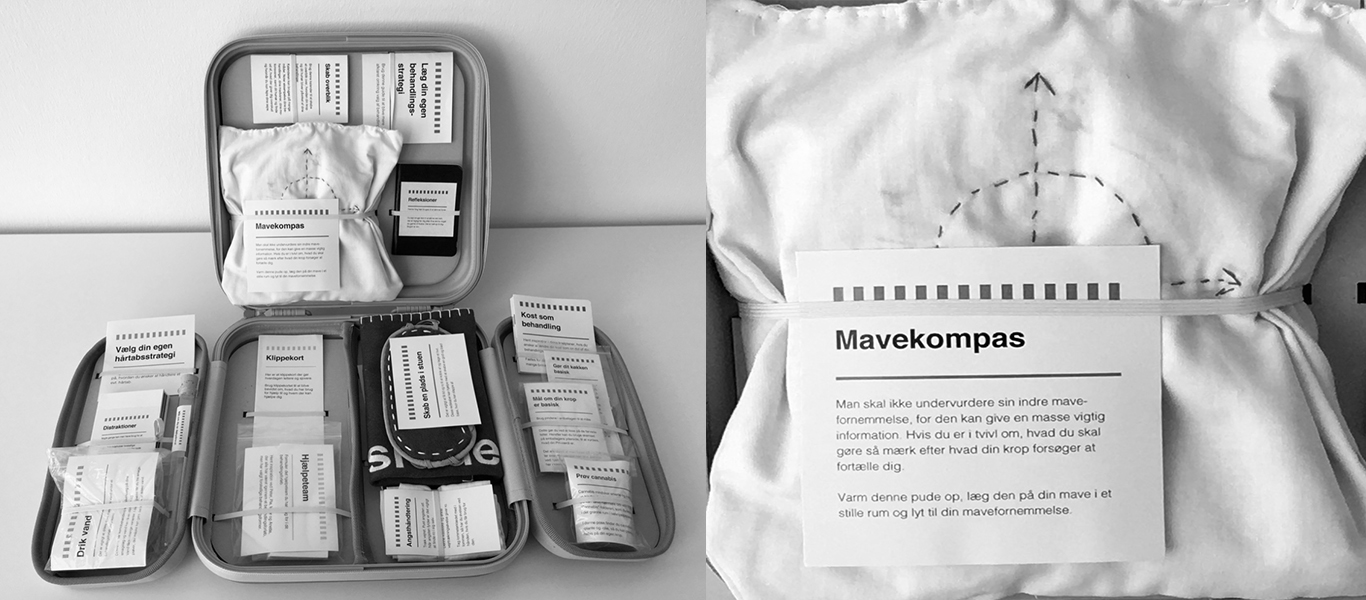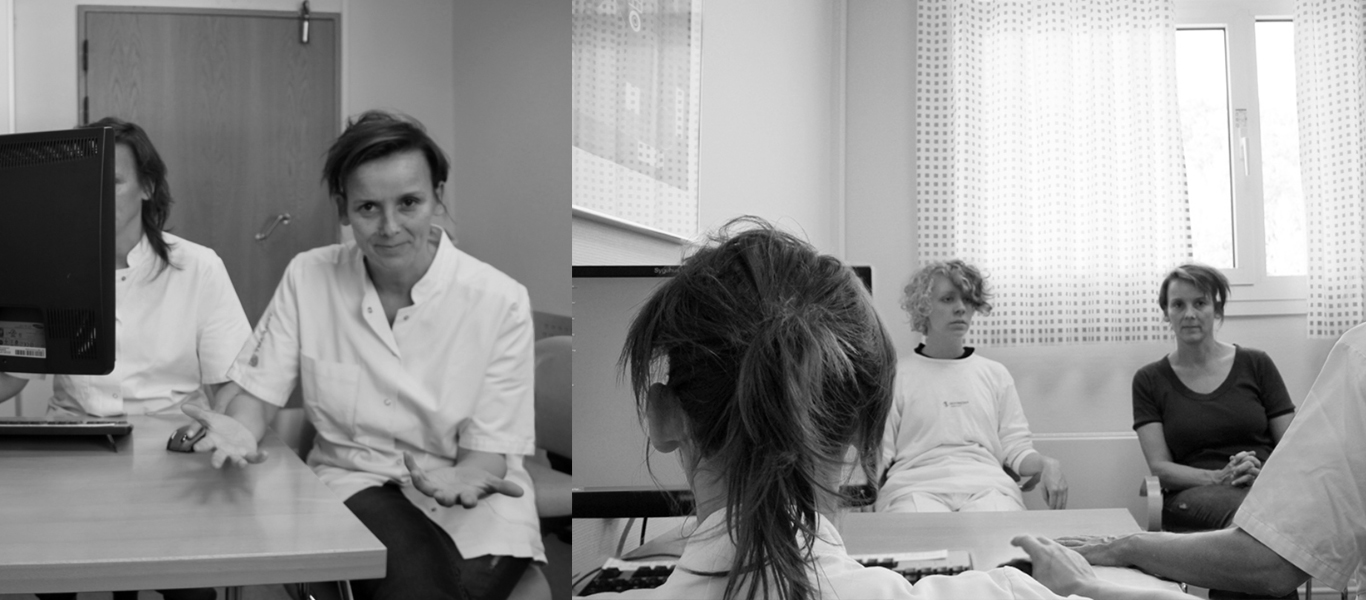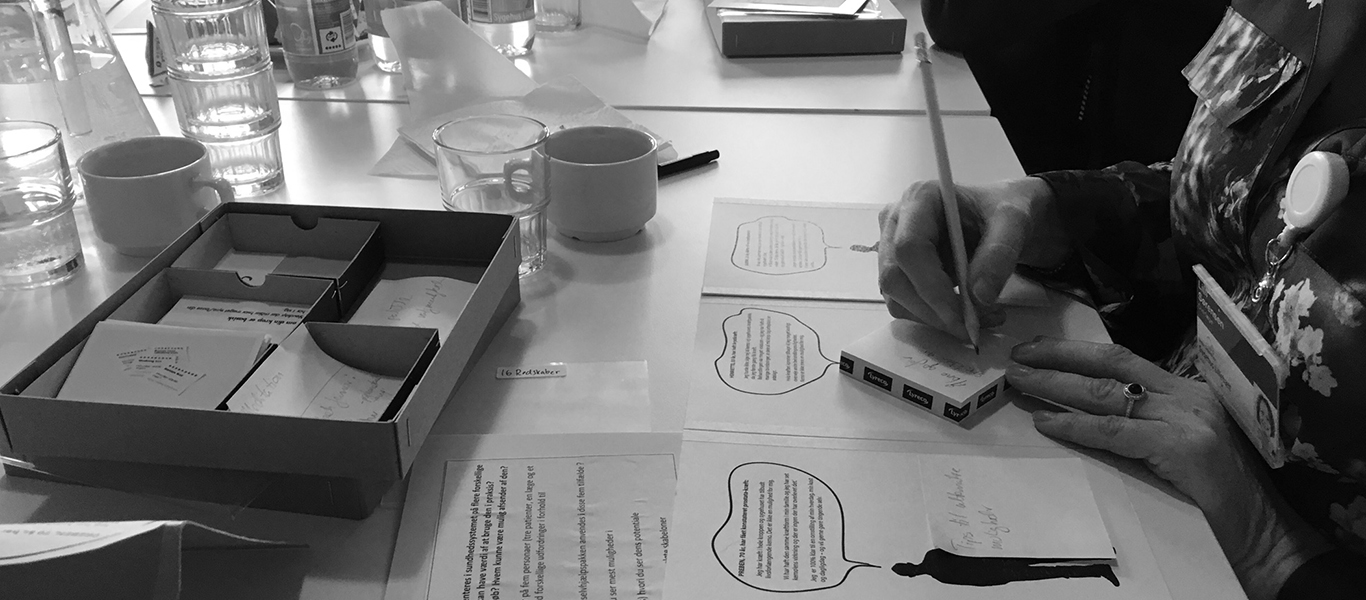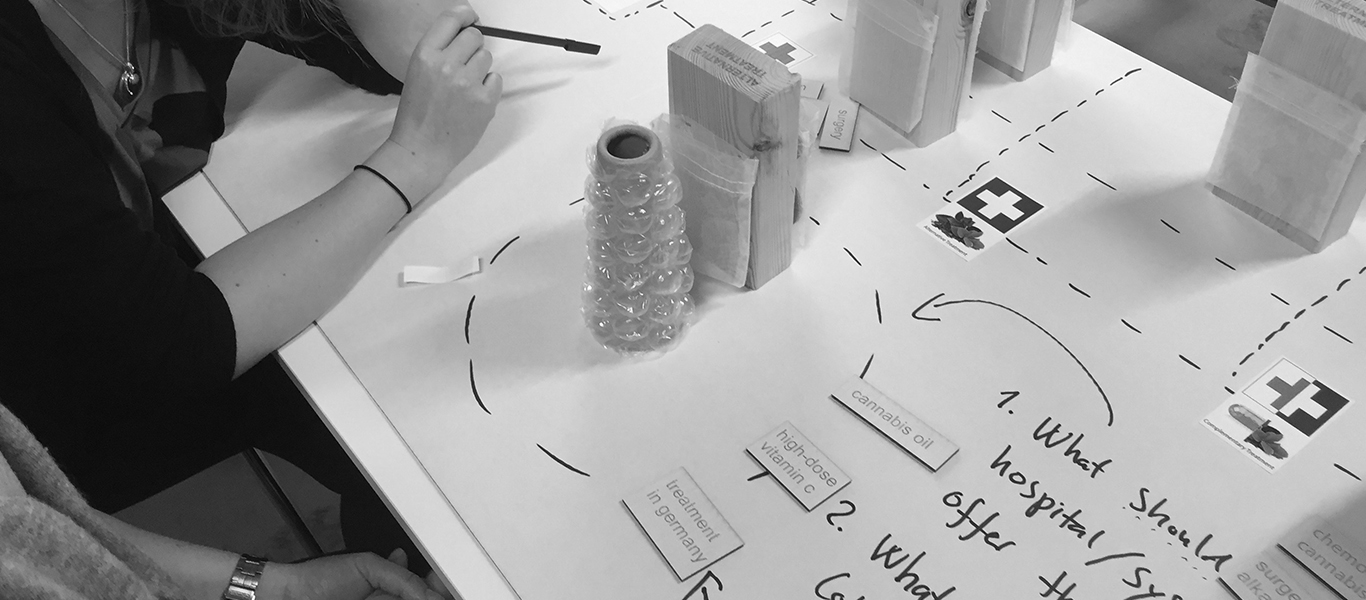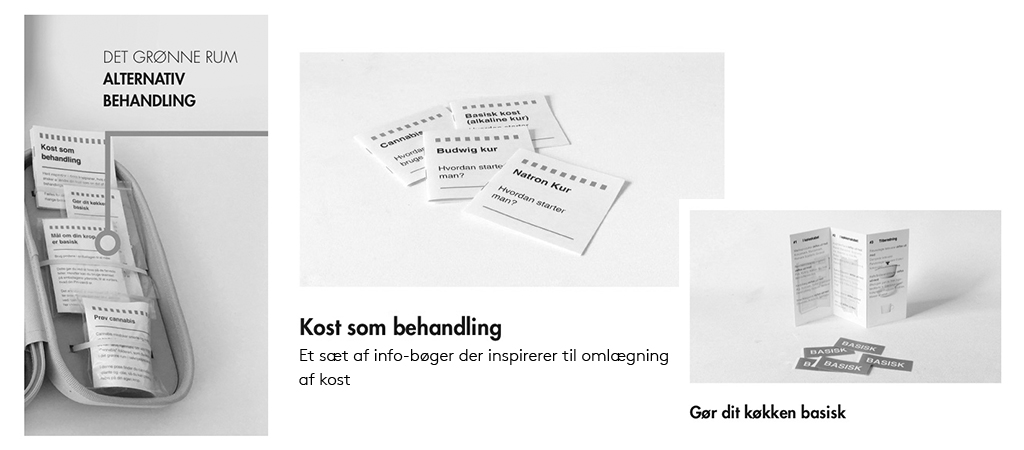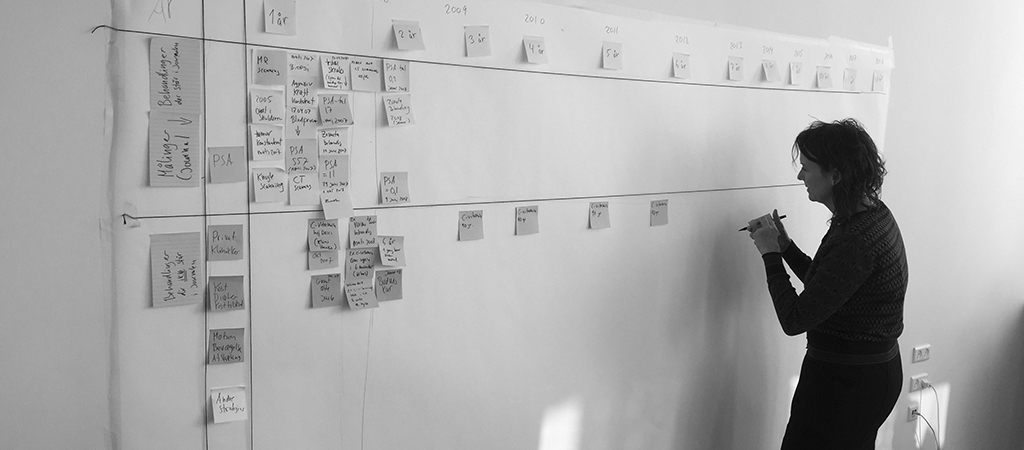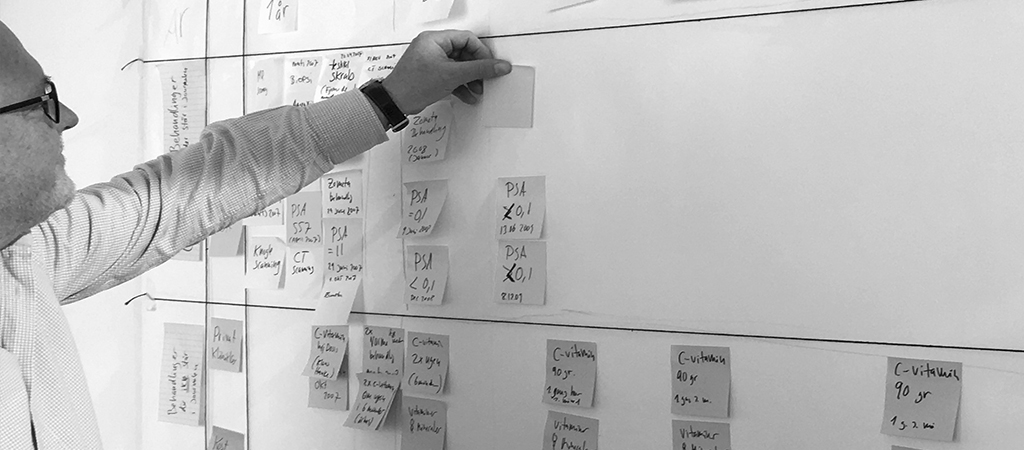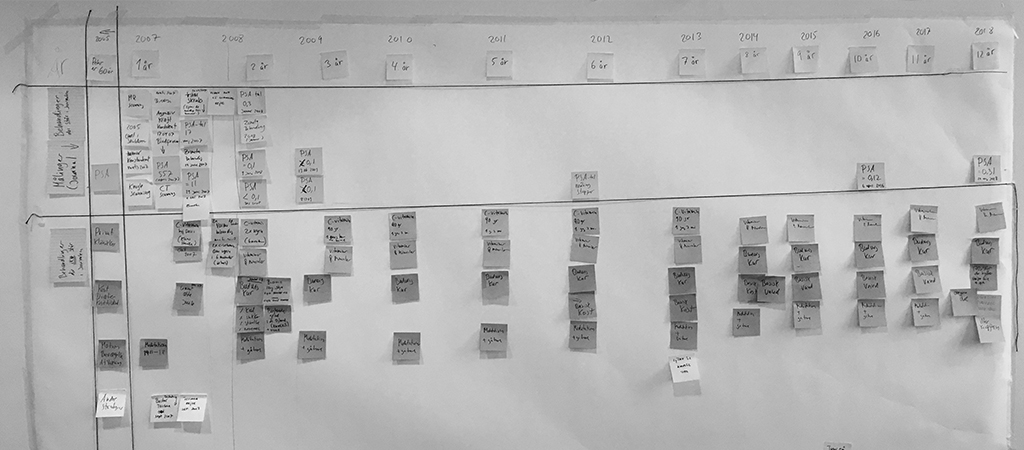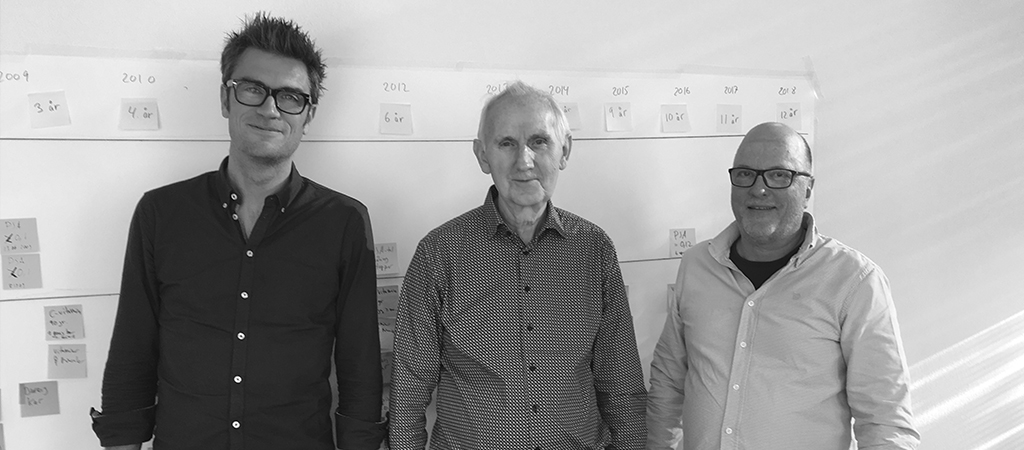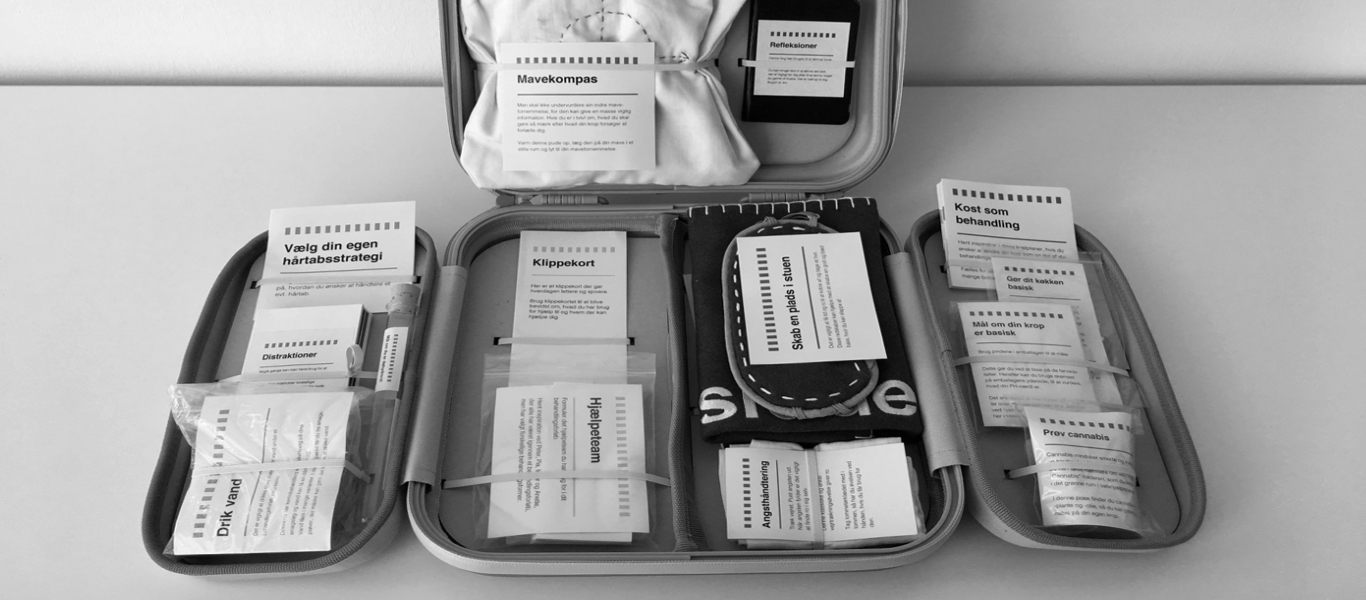What is Vulnerable Youth & Patient Empowerment?
Vulnerable Youth – Loneliness, stress, anxiety, grief and depression are increasing among young people. Some even talk about a ‘youth health pandemic’. We use design research to better understand what causes troublesome life for young people, how they respond to and cope with it and whether or not design can be of value to support them.
Patient Empowerment – Shared decision making and patient-centred healthcare are central for increasing life quality of people suffering from cancer and chronic diseases. In collaboration with hospitals we use design to improve healthcare practices and the communication between health professionals, patients and their relatives.
What is Patient Empowerment & Vulnerable Youth?
Shared decision making and patient-centred healthcare are central for increasing life quality of people suffering from cancer and chronic diseases. In collaboration with hospitals we use design to improve healthcare practices and the communication between health professionals, patients and their relatives.[spacer height=”20px”]
These are our projects involving Patient Empowerment:

LONELINESS AMONG YOUTH
In Denmark, it is estimated that 22% of young people (16-24 years) feel lonely. This feeling can have serious consequences for a young person and lead to self-harm, anxiety and depression. Mads Grønne Bärenholdt’s Ph.d. project is focused on understanding the experienced feeling of loneliness and aims at codesigning a dialogue tool that can help lonely adults as well as volunteers working with this target group. Read more about it in our news article “Research seminar with Michael Bamberg”.
The project started in 2021 and the PhD defense is expected to take place in the spring/early summer of 2024.
Researchers
Mads Bärenholdt (PhD) Department of Design, Education and Cognition, University of Southern Denmark
Supervising team: Eva Knutz, Ann Starbæk Bager, Thomas Markussen Department of Design, Education and Cognition, University of Southern Denmark
Partners
(NGO) Husrum Danmark (Århus, Horsens, Silkeborg, Viborg, Randers)
Project time
February 2021 – March 2024

CHILDREN IN GRIEF
Co-designing new support practices with young children in grief
The overall aim of this project is to design support needs for children in grief. Each year approximately 2000 children under 18 years lose a parent and empirical studies document that parental loss expose these children more frequently to adverse health and social outcomes. To mitigate these adverse collateral effects 144 grief support groups are established in Denmark. However, limited knowledge exists of young children’s grief and support needs and practitioners lack evidence-based tools and interventions.
Project start is 01.02.2024
Researchers
Kristine Skov Hansen Department of Media (PhD), Department of Design, Education and Cognition, University of Southern Denmark Supervising team: Eva Knutz, Thomas Markussen – Department of Design, Education and Cognition, University of Southern Denmark
Partners
The Danish National Center for Grief (Copenhagen)
Project time
February 2024 – March 2027
Funded by
Independent Research Fund Denmark / Danmarks Frie Forskningsfond (grant ID: 10.46540/3167-00031B)
Budget
3.100.00 DKK


PROMETHEUS
THE PATIENT EMPOWERMENT KIT – Designing a self-aid kit for cancer patients
The demographic changes, and the digitalized information society, present challenges across borders and across Europe. Therefore we will have to deal not only with a rising number of elderly patients and growing demands on the healthcare system, but also with an utterly new generation of patients. They will want to take an active part in their health management and in the choice and actual form of their therapy. One of the future challenges will be to create new tools that can inform and activate patients as well as enabling them to carry out various forms of self-management.
Our contribution to the 3 year EU-funded PROMETHEUS project are twofold:
- On the basis of the involvement of cancer patients we have developed detailed patient profiles giving health professionals insight into patient’s individual notions of life quality during cancer treatment
- We have developed a shared decision making tool that enables patients to better navigate through options of medical, complementary and alternative treatment.

“The kit should support patient’s individual needs and quality of life through pro-active help supplies.”
Researchers
Eva Knutz, Signe Mårbjerg Thomsen, Thomas Markussen Department of Design, Education and Cognition, University of Southern Denmark, Denmark and Health Services Research Unit, Vejle Hospital
Partners
The Health Service Research Unit, Vejle Hospital, Aarhus University and Kiel University Hospital
Project time
August 2015 – August 2018
Funded by
InterReg 5a project, grant number 07-1.0-15.
Budget
2,199,693 EUR

HUM-SEED
The aim of the HUM SEED project is to conduct a pilot study of whether cancer patients, who make dietary changes and self-treatment has a chance of stabilising their illness. Moreover, the project will extend existing collaborative ties between researchers at the Department of Design, Media and Educational Science and Lillebælt Hospital’s Health Services Research Unit and Urological Research Unit in order to strengthen cross-disciplinary research competences
Researchers
Thomas Markussen, Eva Knutz, Department of Design, Education and Cognition, University of Southern Denmark
Partners
Professor Jette Ammentorp Enheden for Sundhedstjeneste -forskning. Chief physician and professor Palle Sloth Urologisk department, Vejle Hospital
Project time
January 2015 – June 2019
Funded by
SDU’s Strategic Research Funding
Budget
3.737.00 DKK
HERACLES
The task of the social design unit in the 3-year EU-funded HERACLES project is to develop and evaluate the patient empowerment kit. This kit is designed to increase cancer patients’ life quality by offering tools, coping tactics and advices that other patients have valued in the course of their treatment.
What is unique about it is that it’s content is informed by cancer patients, who have experienced the disease on their own body. By bringing together tools, tactics and advices from patients who have gone through medical, alternative or complementary treatment, the patient empowerment kit unites strategies and perspectives which remain largely uncoordinated in the Danish healthcare system.
Patient empowerment kit is organised into 4 compartments:[spacer height=”-10px”]
- Tactics for coping with side-effects of medical treatment using fx acupuncture
- Network strategies for improving family life through support from relatives and friends’
- Everyday tactics for coping with anxiety and stress
- Alternative treatment strategies such as dietary changes and alkaline food

“Patient empowerment kit is designed for cancer patients to enable self-care coping with a life threatening disease and inspire hope for the future.”
Researchers
Eva Knutz, Flemming Thøisen, Thomas Markussen Department of Design, Education and Cognition, University of Southern Denmark
Partners
The Health Service Research Unit, Vejle Hospital and Kiel University Hospital
Project time
2018 – 2021
Funded by
EU-Interreg
Budget
1,020,417 EUR

